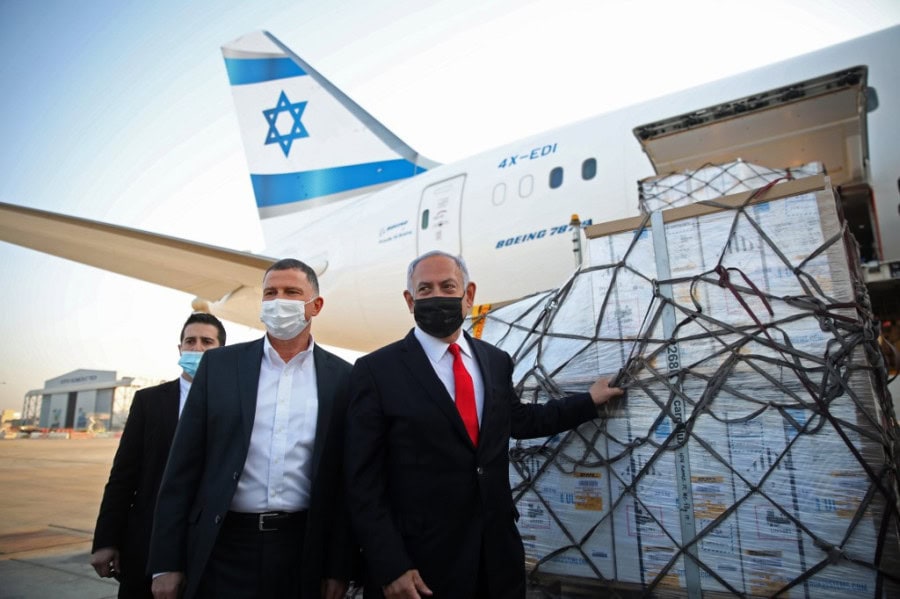The last quarter of 2020, Israel was racing aggressively with much bigger nations to obtain vaccine supplies from global producers as the coronavirus pandemic erupted. Now, it finds itself initiating one of the world’s most rapid vaccination initiative, with an increasing number of vaccine that it will use.
When and how did a nation with hardly 9m inhabitants influence companies attending markets with hundreds of millions of likely customers to fill its orders first? The explanation rests in 17 talks between Albert Bourla, Pfizer’s chief executive, Benjamin Netanyahu, Israel’s prime minister, and Yuli Edelstein, the health minister.
The two Israeli statesmen vowed to establish one of the fastest vaccination drives in the world and distribute data on its impact on the pandemic, so long as quantities were abundant and continuous. Pfizer agreed and the distributions started by mid-December. “The company will be able to boast about it, to make a profit from it and to publicise it,” said Mr Edelstein, in an interview with the Financial Times. “Without this, any company wouldn’t even be looking at our direction — they would be looking for markets a hundred times the size.”
My equals in other nations tell me that I may be the only health minister in the world who is smiling right now Yuli Edelstein, health minister With more deliveries due, Israel is now set to have a plethora of vaccines from all three main companies by March.
Already the Pfizer deal has seen planeloads of BioNTech/Pfizer vaccines land nearly every Sunday in Tel Aviv, greeted by television cameras.
While different states have struggled to ramp up supplies, and some face delays, Israel has managed to provide first shots to more than 2.6m citizens, and second shots to just over 1.1m, mostly over the age of 60. “We are vaccinating at 10 times the pace of the United States,” Mr Netanyahu said on Sunday, guaranteeing 1m new shots this week.
“No country has done what we are able to do.” The deal — and the quick efficiency of the vaccination approach — has reinforced Mr Netanyahu’s political fortunes, as he explores re-election in late-March. He has toured vaccination centres, met the aircraft at the dock and framed the syringe he was vaccinated with, boasting of his achievement in pulling off the national effort, which he has nicknamed “Back to Life”.
Distributions of pre-ordered Moderna vaccine will pick up in March and millions of shots of the AstraZeneca vaccine are also en route.
By then Israel intends to have most of its adult community treated with Pfizer’s vaccine. Whatever Israel will do with those additional stocks is still not clear, said Mr Edelstein. Israeli media have proclaimed that some EU allies, such as Cyprus, had asked Mr Netanyahu for excess supplies, but Mr Edelstein denied those reports.
“We want to make sure we have enough for us and, if there is enough, we will see what we can do for our immediate neighbours — the fact that the Palestinians are in a bad shape right now is not in Israel’s interests.”
The Palestinian Government is still expecting supplies from Russia’s Sputnik V and the World Health Organization’s flagship vaccine distribution initiative, Covax. Already hospitals around the nation are collecting data on antibody numbers in personnel, and reductions in viruses between those who have received their second shots.
The data reveals that even with its world-beating pace — 40 per cent of Israelis have received at least one shot already — the pandemic has yet to be brought under control.
One study of those over 60 per cent who have taken the booster shot showed an instant decline of at least 60 per cent in new infections, but another warned that new variants were making teenagers a worrying vector of rapid transmission, risking their parents. Part of the basis for Israel’s infection rate is that Mr Netanyahu has tried to enforce lockdown compliance among the population, whose leaders prop up his alliance.








